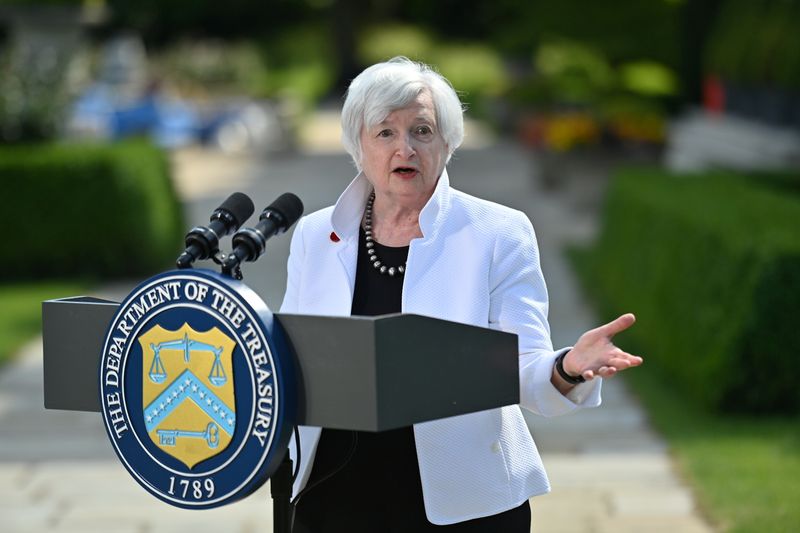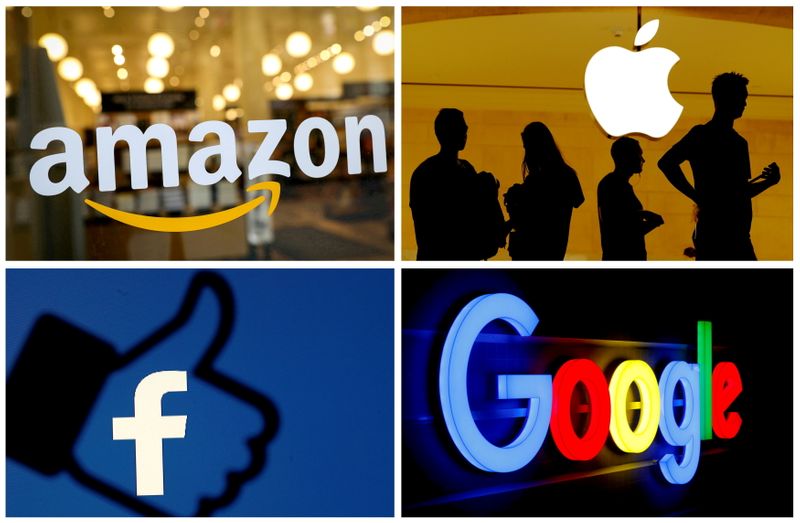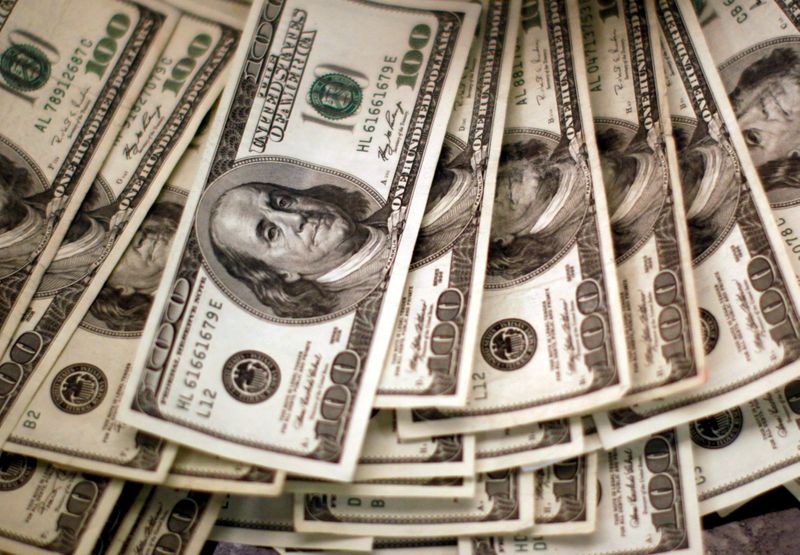WORLDWIDE: HEADLINES
U.S. Republicans vow to oppose Yellen’s G7 tax deal, casting doubt on its future

Several top U.S. Senate Republicans on Monday rejected Treasury Secretary Janet Yellen’s G7 deal to impose a global minimum corporate tax and allow more countries to tax big multinational firms, raising questions about the U.S. ability to implement a broader global agreement.
The opposition from Republicans may push President Joe Biden to attempt to use budget procedures to pass the initiatives with only Democratic votes.
It left lawyers and tax experts in Washington wondering whether it could get done without crafting a new international treaty, which requires approval by a two-thirds majority in the evenly split 100-member Senate.
“It’s wrong for the United States,” Republican Senator John Barrasso said of the tax deal struck on Saturday by finance ministers from the G7 wealthy democracies.
“I think it’s going to be anti-competitive, anti-U.S., harmful for us as we try to continue to grow the economy and certainly at a time when we’re coming out of a pandemic,” Barrasso, who chairs the Senate Republican Conference, told reporters at the U.S. Capitol.
In the landmark agreement, G7 finance ministers agreed to pursue a global minimum tax rate of at least 15% and to allow market countries to tax up to 20% of the excess profits – above a 10% margin – of around 100 large, high-profit companies.
Yellen said the “significant, unprecedented commitment” would end what she called a race to the bottom on global taxation.
In exchange, G7 countries agreed to end digital services taxes, but the timing for that is dependent on the new rules being implemented.
Full coverage: REUTERS
Big tech supports global tax, but wants digital services levies axed

U.S. tech giants could benefit from the agreement of the Group of Seven rich countries’ agreement to create a global minimum 15% corporate tax rate if the final deal also scraps increasingly popular digital services taxes, according to industry lobbyists.
The deal, reached Saturday, was designed to reduce companies’ incentives to shift profits to low-tax offshore havens and could bring hundreds of billions of dollars into government coffers.
The statement on the U.S. Treasury Department website touting the deal also discusses the “removal of all Digital Services Taxes, and other relevant similar measures, on all companies.”
Facebook Inc (FB.O) was quick to praise the deal, and Alphabet Inc’s (GOOGL.O) Google followed suit: “We strongly support the work being done to update international tax rules. We hope countries continue to work together to ensure a balanced and durable agreement will be finalized soon,” said spokesman Jose Castaneda.
The industry wants levies like France’s 3% tax on certain online revenues removed. In 2019, France applied a 3% levy on digital services revenue earned in France by companies with revenues of more than 25 million euros there and 750 million euros worldwide. It suspended collection in early 2020 while negotiations were underway on international tax rules.
Levied on revenue rather than profit, the taxes have become an increasingly popular way for countries to balance their budgets, said Matthew Schruers, president of the Computer and Communications Industry Association. CCIA members include Facebook, Google and Twitter.
He noted that the communique over the weekend set expectations that digital services taxes will be repealed. “Companies are supportive of these global tax talks and the minimum tax is the price of tax certainty.”
Full coverage: REUTERS
WORLDWIDE: FINANCE /MARKETS
Dollar subdued as investors look to key U.S. inflation gauge

The U.S. dollar was subdued on Tuesday as investors looked to U.S. inflation data due later in the week after softer-than-expected jobs data quelled expectations of an early tapering in the Federal Reserve’s stimulus.
The euro fetched $1.21915, bouncing back from its three-week low of $1.2104 set on Friday while the dollar eased to 109.26 yen, losing steam after having hit a two-month high of 110.325 late last week.
The dollar’s index against a basket of six major currencies stood at 90.021, not far from 89.533, a 4 1/2-month low touched late last month.
“It’s not that the payrolls numbers were weak. But because so much expectation had been built up in advance, the dollar suffered a bit of setback,” said Shinichiro Kadota, senior currency strategist at Barclays.
Friday’s jobs data, which showed U.S. non-farm payrolls increasing by 559,000 in May, fell 90,000 jobs short of expectations.
The data helped to pin down U.S. bond yields near their recent lows, weighing on the dollar, while investors now looked to consumer price data on Thursday for fresh direction.
Many investors now expect the Fed to unveil a plan to reduce its bond purchase later this year, and actual tapering to start early next year.
The British pound hardly budged at $1.4169 while the Australian dollar was unchanged at $0.7753, both stuck in ranges seen over the past couple of months.
Elsewhere, the Mexican peso held firm at 19.832 to the U.S. dollar, near its highest level since late January, after midterm elections confirmed President Andres Manuel Lopez Obrador’s MORENA party as the strongest force in the country, but with a reduced majority.
Full coverage: REUTERS
Oil falls again amid concerns over demand rebound

Oil prices lost more ground on Tuesday as concerns about the fragile state of the global recovery in demand for crude and fuels were heightened by data showing China’s oil imports fell in May.
Brent crude was down 11 cents, or 0.2%, at $71.38 a barrel by 0151 GMT, after declining 0.6% overnight. U.S. oil was off by 13 cents, or 0.2%, at $69.10 a barrel, having dropped by 0.6% in the previous session.
“Chinese oil imports at a five-month low … would tend to confirm weakness in the Asia market,” said Bob Yawger, director of energy futures at Mizhuo Securities.
China’s crude imports were down 14.6% in May, from a high level a year earlier, with daily arrivals at the lowest level this year, as maintenance at refineries limited demand for oil purchases.
Crude prices have risen in recent weeks, with Brent up by nearly 40% this year and WTI gaining more than that, amid expectations of demand to return as some countries succeed in vaccinating populations against COVID-19.
Restraint on supply by the Organization of the Petroleum Exporting Countries and allies has also helped buttress prices.
But major oil importers like India have been going through waves of infections that continue to threaten the expected pickup in global demand in the second half of this year.
Full coverage: REUTERS
S&P closes nominally lower as investors wait for a catalyst

The S&P 500 ended a languid session slightly in the red on Monday, with investors standing by on news of a global minimum corporate tax rate, lingering inflation fears, and a lack of market-moving economic news.
The Dow closed well within negative territory, while the Nasdaq advanced. Still, the S&P and the Dow remained inside one percentage point of their record closing highs.
“Thematically, we’re done with earnings, so you have this lull in between earnings when what drives the market is economic data points,” said Joseph Sroka, chief investment officer at NovaPoint in Atlanta. “There’s not a lot of impetus for investors to take action today.”
“There’s been this flip-flop between whether inflation will be transitory or persistent, and the next card that gets flipped over for that is the CPI report on Thursday,” Sroka added.
Smallcaps outperformed as the ongoing retail frenzy boosted stocks whose recent explosive trading volumes have been attributed to social media buzz.
AMC Entertainment Holdings jumped 14.8%, extending the previous week’s 85% gain.
Other so-called “meme stocks,” including GameStop Corp and U.S.-listed shares of Blackberry Ltd advanced between 7% and 14%.
“You’ve seen a decades-long, technology-enabled democratization of the market and there’s certainly groups of individual investors that flock to these ideas,” Sroka said. “We’re seeing speculative trading in an age of multiple outlets and social media amplifies the news.”
The Group of Seven (G7) advanced economies agreed on Saturday to back a minimum global corporate tax rate of at least 15%, a move Treasury Secretary Janet Yellen called a “significant, unprecedented commitment” to bring what she called a race to the bottom on global taxation.
Lawmakers in Washington are doubling down on efforts to craft a bipartisan infrastructure spending package, with House Democrats expected to bring a bill to vote as early as Wednesday.
The Dow Jones Industrial Average fell 126.15 points, or 0.36%, to 34,630.24; the S&P 500 lost 3.37 points, or 0.08%, at 4,226.52; and the Nasdaq Composite added 67.23 points, or 0.49%, at 13,881.72.
Full coverage: REUTERS



